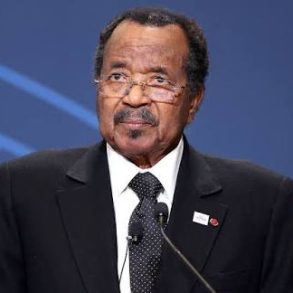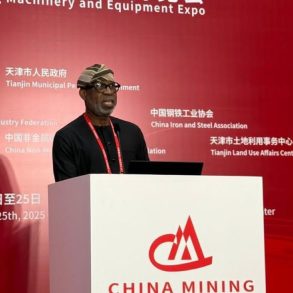June 12, 2024
A call has gone to the Yoruba nation to brace up and promote her own culture if she’s to overcome the current challenges confronting her.
The call was made by Otunba Deji Osinbogun at the 2nd Annual Conference of the Think Yoruba First, a Yoruba socio-cultural group, held recently in London.
Delivering a lecture on ‘Changing Demographics in Yorubaland and Rural Urban Migration and Gentrification. Otunba Osinbogun, who wondered why the Yoruba were not proud of their culture noted that the Chinese, the Hausa and the Igbo always promoted their cultural identities over and above other cultures wherever they were found.
The major factors threatening the Yoruba with extinction, according to him, included poverty, decayed infrastructure in the education sector and lack of principle and commitment amongst the political elite.
Noting that sex, religion, education, modern housing, economy and strangers who turn indigenes to slaves on their own lands were key factors in turning the tide, the Otunba Obaloja of Ijebuland charged advocacy groups to sensitise the people to the need to stand up for their rights which he noted were lost to long years of military dictatorship.
He also charged indigenous groups and associations to constantly visit home and assess the rate of development at home.
Otunba Osinbogun lamented the menace of current rural-urban migration that opened doors for strangers to take over people’s homelands; whereas, the land owners often got to the cities to become destitute.
He stressed the need for the restructuring of the country to fast-track progress and development.
In her own contribution, Dr. Bukola Adeniji, TYF Gen Sec, who presented academic research with Data Projection of Yoruba Population Dropping to Minority in South-West by 2048′, appealed to South-West leaders to act in unison to protect the region’s culture and political strength.
In his own contribution, Barrister Dele Ogun posited that if the Yoruba nation was to avoid the fate of races which has gone into extinction, the people should read the books that needed to be ready, as according to him, the books were not written for nothing.
Debunking the claims in certain quarters that Nigeria as a nation was meant to be dissolved after 100 years if the country’s arrangement could not work, Barrister Ogun, who cited some documentary evidence said Nigeria at inception was actually meant to be a permanent entity.
He commended the Think Yoruba First organisation for the timing of the conference.
Speaking at the conference, Mrs Titi Aboyade stressed the need to protect Yoruba youth from consuming biased media which were often with subliminal messages.
To preserve Yoruba language, Prof Fagborun recently developed and published a Yoruba visual dictionary, one of its kind.
Afenifere Acting General Secretary, Abagun Kole Omololu, in his opinion, was of the opinion that It was a matter of urgency that Yoruba sat up to her responsibility in the world as part of world leaders.
Otunba Abimbola Ashiru though not physically present, sent a note with the need to revive the previously vibrant economy of the Yoruba, South-West of Nigeria, and commended Lagos State and her achievements.
The need to understand the past to inform the future was emphasized by Adeniran Adeboye, a professor of Mathematics at Howard University.
Speaking on ‘Religious Tolerance in Yorubaland’, a renowned Moslem cleric, Sheikh Akewugbagold, lamented that the Yoruba did not appreciate enough, the goodness of God.
Citing the Holy Qur’an 14:29, Akewugbagold emphasised that God never made mistakes in creating mankind and placing nations of the earth where they were.
The Moslem cleric, who asked why Boko Haram was killing Moslems of other nationalities different from their own, charged the Yoruba to unite and get hold of political power if the race was to move forward.
Earlier in his welcome address, the Think Yoruba First President, Oladimeji Bolarinwa, warned that the Yoruba might become extinct if the race did not protect her own civilization.
Looking at the theme ‘The Place of Yoruba in the Next 200 Years’, Bolarinwa, who cited many examples of cities and nations which rose within the last 200 years, including Poland, Germany, Ibadan, Southern Sudan and Ethiopia, urged the Yoruba to take their politics, marriage, education and other cultural practices seriously.
Describing Yoruba civilisation as a consciousness which transcended politics, the TYF chieftain stressed that the Yoruba were a unique and diverse people, who had strong presence in Islam, Christianity and indigenous worship.
The Think Yoruba First group expressed its gratitude to all and commended them on the great achievements of the Yoruba with the election of Chief Bola Ahmed Tinubu whom they believed was the right man for Nigeria at this critical time.
The event was graced by other members of the organization, including Mrs Ajoke Ejide; Akanji Àgan, OlaKunle Faleti, Rasaq Agbalaya and many other members and friends of TYF.






